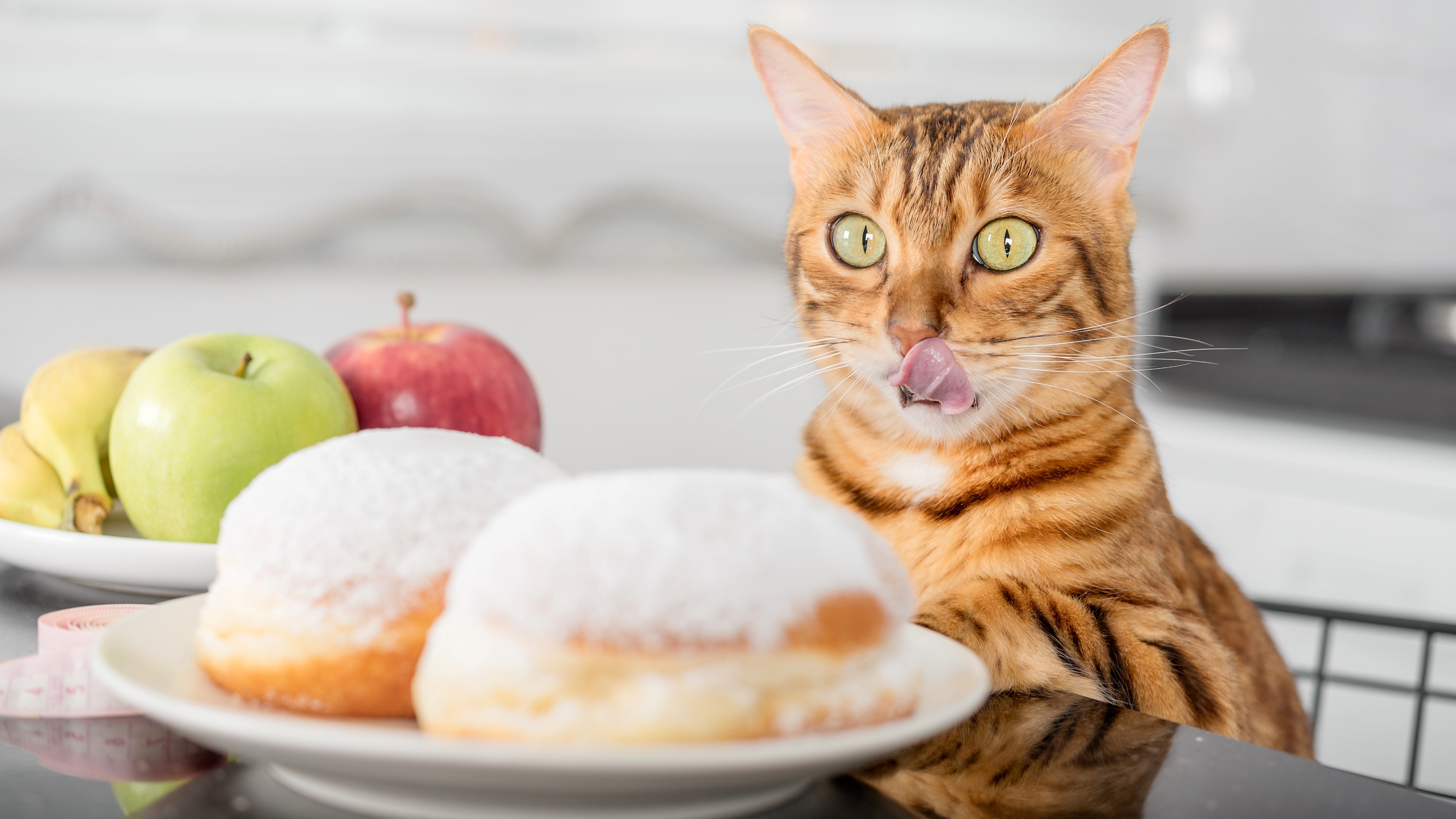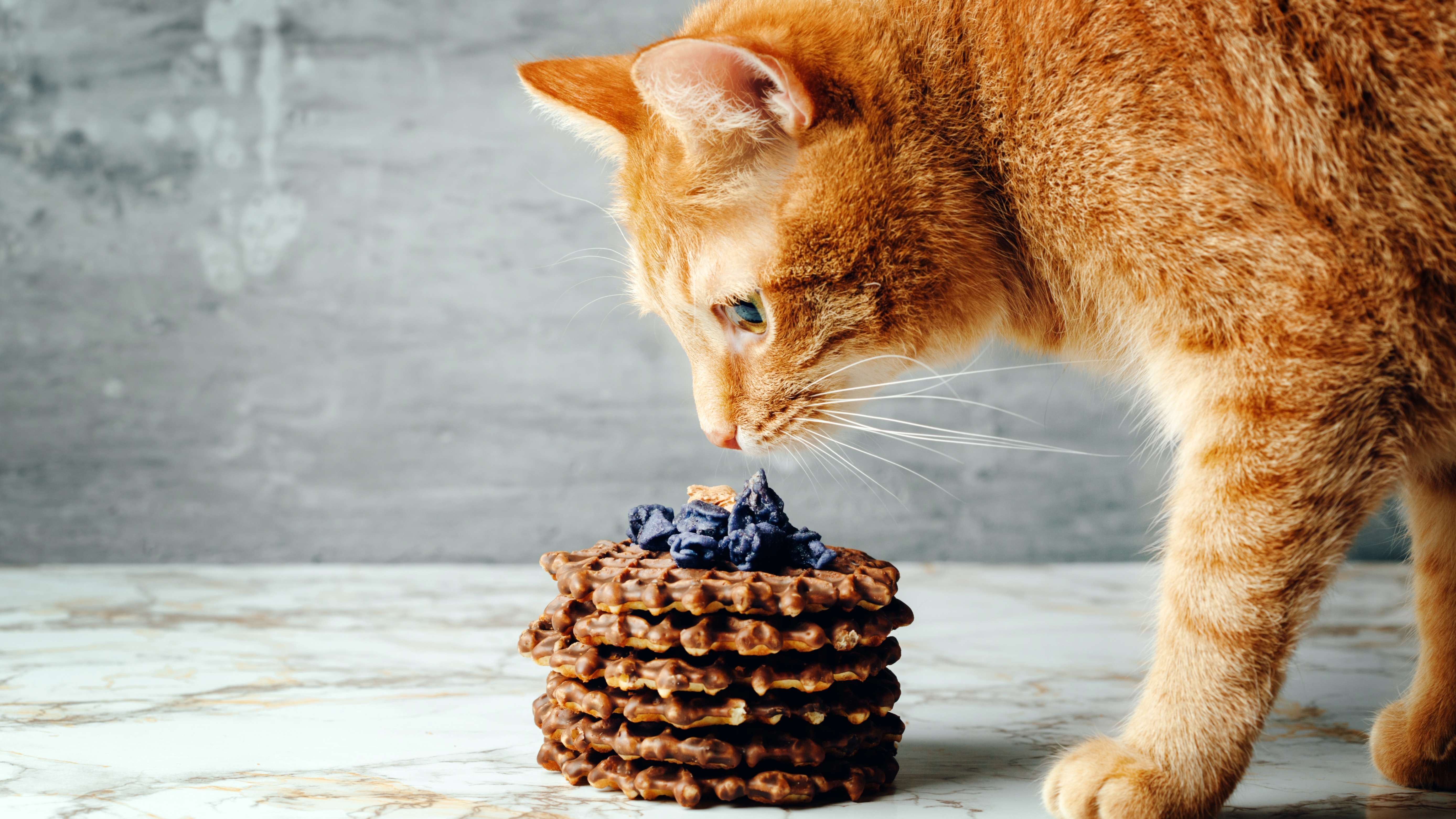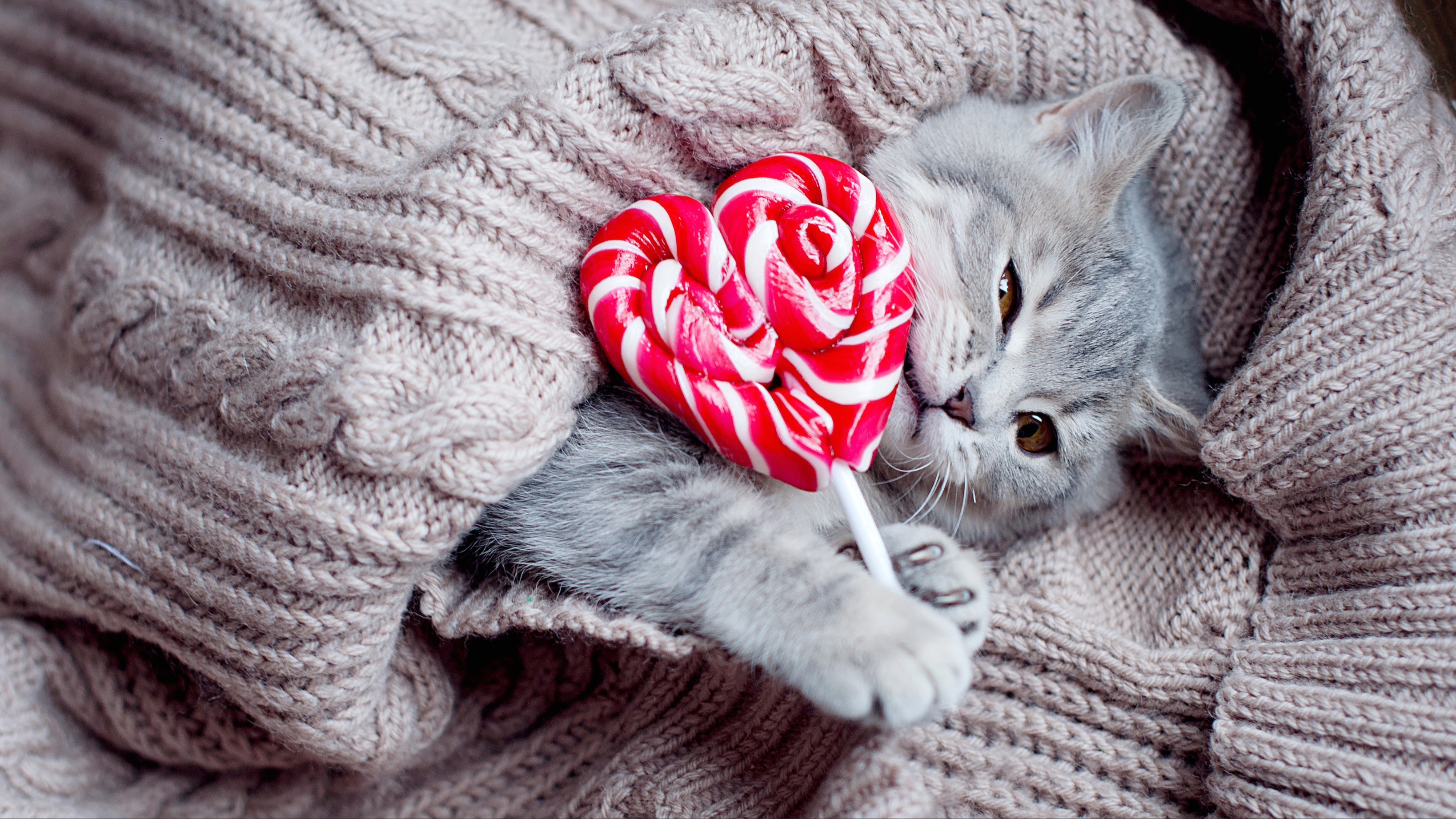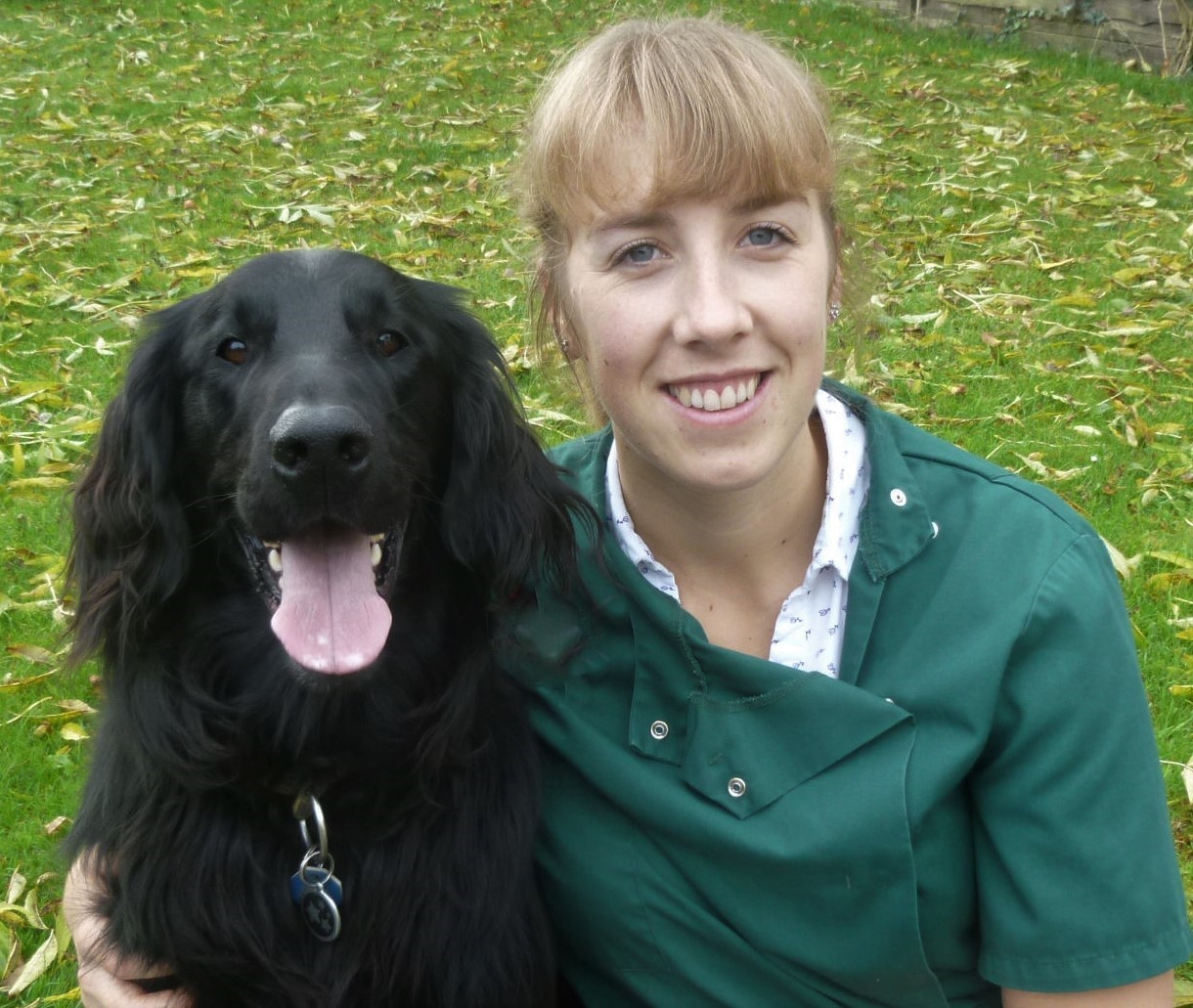Can cats taste sugar?
Can cats taste sugar? Vet reveals whether our feline friends have a sweet tooth.

Get the best advice, tips and top tech for your beloved Pets
You are now subscribed
Your newsletter sign-up was successful
Can cats taste sugar? If you've ever entered your kitchen to find your feline friend sat next to a freshly iced cake wearing nothing but a guilty expression and vanilla frosting on their whiskers, it's a question you may well have found yourself asking.
You likely feed your kitty a diet of the best cat food, so hunger probably isn't the reason behind their cake crimes. And as it turns out, neither is a craving for sweet treats because cats can't taste sugar — we know, our mind was blown by this revelation, too!
So if cats lack the taste buds to detect sugar, why is it that we often find our feline friends nibbling on our unattended baked goods? There are some things you only know if you're a cat owner, but even we were puzzled by this one, so we sought the advice of expert vet, Dr. Rebecca MacMillan. Here's what she had to say...
Can cats taste sugar?

We love learning new little known facts about cats and we were stunned to discover that our feline friends are one of the few animals on the planet that can't taste sugar!
"Cats are unable to taste sweet things like sugar," confirms Dr. MacMillan. "The genes Tas1r2 and Tas1r3 are responsible for the coding of the sweet taste receptor proteins in many mammals, including dogs, humans, primates, and rats.
Cats are actually lacking in Tas1r2. As a result of this, cats do not have the full gene code for both of the proteins that are required to detect sweetness. Domestic cats share this trait with many of their wild feline counterparts, including lions, tigers, and wildcats, all of which eat heavily meat-based diets."
Because they need a meat-based diet to thrive, a cat's taste receptors are programmed to detect and respond to meaty flavors as opposed to sweet ones. That's why you'll find your kitty wolfs down a bowl of the best dry cat food or the best wet cat food but will only take a lick or two of a jelly-filled donut.
Get the best advice, tips and top tech for your beloved Pets
What flavors can cats taste?
The more we dug into this issue, the more curious we became. If a cat can't taste sugar, what flavors can they taste? Well, the good news is that while our feline friend's taste buds can't detect sweet things, their palette can pick up a whole host of other flavors that ensure meal times remain a delicious experience.
"Despite not being able to taste sweet things, there is nothing wrong with the rest of their taste buds," explains Dr. MacMillan. "Cats can taste all of the other normal things that we can including salty, sour, bitter, and umami (meaty) flavors."
However, they are also known to be able to taste other things too. They can taste adenosine triphosphate (ATP) which is a compound that supplies energy to all living cells. It is only present in very tiny quantities, but it signals to cats that what they are eating is meat. This is more important as an obligate carnivore than being able to taste sweet flavors."
Why do cats like sweet foods if they can't taste them?

We have to say, we were really puzzled by why we so often find our cats nibbling on our unattended sweet treats if they can't taste the sugar in them. Thankfully, Dr. MacMillan gave us an answer that helped us to understand this strange behavior a little better!
"It is unclear why some cats still seem to enjoy eating sugary foods," she says. "It's thought that perhaps some cats are able to use their Tas1r3 receptors to taste sugar when it is in highly concentrated amounts. But it may also be that they can taste other certain elements in the food instead. Alternatively, they may just enjoy the texture or the experimentation that comes with sharing our snacks!"
So while the jury is still out on whether some cats may be able to taste sugar in concentrated forms when it comes to what human food can cats eat and taste, things like tuna, chicken, prawns, and eggs are all popular and safe treats that our feline friends tend to love.
And just like when it comes to the question of 'why do cats eat hair?', it turns out that cats trying to share our sugary snacks even when they can't taste them may just be down to them wanting to feel connected to us. Which, when you think about it, is its own brand of sweetness!
What happens if a cat eats sugar?
While they may not be able to taste sugar, as cat owners we were still concerned about whether or not eating sugary foods may cause our kitties to become unwell. However, according to Dr. MacMillan a little bit of sugar now and again is unlikely to have any negative effects.
"Sugar is not toxic to cats so a little now and then is unlikely to cause any harm," she confirms. "However, eating sugar in large amounts or on a regular basis is not healthy for them.
Cats are designed to extract their energy from protein and fats in their diets, with smaller amounts needed from carbohydrates. This fits in with their obligate carnivore lifestyle. Eating too much sugar (simple carbohydrates) can lead to an energy excess, which will contribute to health issues like obesity and diabetes mellitus.
So my advice would always be to steer clear of unhealthy sugary snacks and make sure your cat sticks to their normal, good-quality complete cat food."
If you enjoyed this piece and are looking for answers to more puzzling kitty questions, we've got you covered in our guide to what colors can cats see? Plus, you don't want to miss these super fun cat brain facts!

Rebecca is a vet surgeon who graduated from the Royal Veterinary College in 2009. She has a wealth of experience in first opinion small animal practice, having done a mixture of day-to-day routine work, on-call emergency duties and managerial roles over the years. She enjoys medicine in particular and she is proud to have recently achieved a BSAVA postgraduate certificate in small animal medicine (with commendation). She writes on various feline and canine topics, including behavior, nutrition, and health. Outside of work and writing she enjoys walking her own dog, spending time with her young family and baking!

Kathryn is a freelance writer who has been a member of the PetsRadar family since it launched in 2020. Highly experienced in her field, she's driven by a desire to provide pet parents with accurate, timely, and informative content that enables them to provide their fur friends with everything they need to thrive.
Kathryn works closely with vets and trainers to ensure all articles offer the most up-to-date information across a range of pet-related fields, from insights into health and behavior issues to tips on products and training.
When she’s not busy crafting the perfect sentence for her features, buying guides and news pieces, she can be found hanging out with her family (which includes one super sassy cat and a kitten), drinking copious amounts of Jasmine tea and reading all the books.
She has written for a range of publications, including Fit&Well, Top Ten Reviews, LiveScience, Goodto, and Product Hunt.
